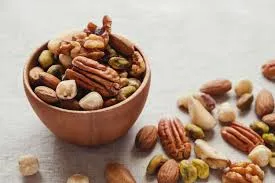-
 Afrikaans
Afrikaans -
 Albanian
Albanian -
 Amharic
Amharic -
 Arabic
Arabic -
 Armenian
Armenian -
 Azerbaijani
Azerbaijani -
 Basque
Basque -
 Belarusian
Belarusian -
 Bengali
Bengali -
 Bosnian
Bosnian -
 Bulgarian
Bulgarian -
 Catalan
Catalan -
 Cebuano
Cebuano -
 Corsican
Corsican -
 Croatian
Croatian -
 Czech
Czech -
 Danish
Danish -
 Dutch
Dutch -
 English
English -
 Esperanto
Esperanto -
 Estonian
Estonian -
 Finnish
Finnish -
 French
French -
 Frisian
Frisian -
 Galician
Galician -
 Georgian
Georgian -
 German
German -
 Greek
Greek -
 Gujarati
Gujarati -
 Haitian Creole
Haitian Creole -
 hausa
hausa -
 hawaiian
hawaiian -
 Hebrew
Hebrew -
 Hindi
Hindi -
 Miao
Miao -
 Hungarian
Hungarian -
 Icelandic
Icelandic -
 igbo
igbo -
 Indonesian
Indonesian -
 irish
irish -
 Italian
Italian -
 Japanese
Japanese -
 Javanese
Javanese -
 Kannada
Kannada -
 kazakh
kazakh -
 Khmer
Khmer -
 Rwandese
Rwandese -
 Korean
Korean -
 Kurdish
Kurdish -
 Kyrgyz
Kyrgyz -
 Lao
Lao -
 Latin
Latin -
 Latvian
Latvian -
 Lithuanian
Lithuanian -
 Luxembourgish
Luxembourgish -
 Macedonian
Macedonian -
 Malgashi
Malgashi -
 Malay
Malay -
 Malayalam
Malayalam -
 Maltese
Maltese -
 Maori
Maori -
 Marathi
Marathi -
 Mongolian
Mongolian -
 Myanmar
Myanmar -
 Nepali
Nepali -
 Norwegian
Norwegian -
 Norwegian
Norwegian -
 Occitan
Occitan -
 Pashto
Pashto -
 Persian
Persian -
 Polish
Polish -
 Portuguese
Portuguese -
 Punjabi
Punjabi -
 Romanian
Romanian -
 Russian
Russian -
 Samoan
Samoan -
 Scottish Gaelic
Scottish Gaelic -
 Serbian
Serbian -
 Sesotho
Sesotho -
 Shona
Shona -
 Sindhi
Sindhi -
 Sinhala
Sinhala -
 Slovak
Slovak -
 Slovenian
Slovenian -
 Somali
Somali -
 Spanish
Spanish -
 Sundanese
Sundanese -
 Swahili
Swahili -
 Swedish
Swedish -
 Tagalog
Tagalog -
 Tajik
Tajik -
 Tamil
Tamil -
 Tatar
Tatar -
 Telugu
Telugu -
 Thai
Thai -
 Turkish
Turkish -
 Turkmen
Turkmen -
 Ukrainian
Ukrainian -
 Urdu
Urdu -
 Uighur
Uighur -
 Uzbek
Uzbek -
 Vietnamese
Vietnamese -
 Welsh
Welsh -
 Bantu
Bantu -
 Yiddish
Yiddish -
 Yoruba
Yoruba -
 Zulu
Zulu
Jul . 29, 2024 06:27 Back to list
Price of 1 Kg Watermelon Seeds for Export by Leading Suppliers and Market Trends
The Global Market for Watermelon Seeds Trends and Export Prices
As the global demand for healthy snacks continues to rise, watermelon seeds have emerged as a valuable commodity in the agricultural export market. These tiny seeds, packed with essential nutrients, are not only a popular snack in various cultures, but they also have significant nutritional benefits. This article delves into the price trends of watermelon seeds, particularly focusing on the exporter market for 1 kg of watermelon seeds.
Watermelon seeds are rich in protein, healthy fats, antioxidants, and a variety of vitamins and minerals. As consumers become increasingly health-conscious, there has been a noticeable uptick in the popularity of watermelon seeds as a viable alternative to traditional snacks like chips and nuts. This shift in consumer behavior is contributing to a booming export market, where suppliers are keen to meet the rising global demand.
The Global Market for Watermelon Seeds Trends and Export Prices
As of late 2023, the average price for 1 kg of watermelon seeds ranges considerably depending on the source, quality, and packaging. Exporters typically sell watermelon seeds at prices between $2 to $6 per kilogram. Organic seeds, which are cultivated without synthetic fertilizers or pesticides, tend to be on the higher end of that spectrum due to their increasing popularity and the more intensive farming methods required. The added value of organic certification also appeals to health-focused consumers, allowing exporters to capitalize on this niche market.
watermelon seeds 1 kg price exporter

Furthermore, the processing methods employed before exporting watermelon seeds significantly impact their market price. Roasted and flavored watermelon seeds are typically sold at a premium compared to raw seeds, broadening the market appeal. Exporters who invest in innovative processing techniques can create value-added products that meet diverse consumer preferences.
The trade dynamics for watermelon seeds are also influenced by international trade agreements and tariffs. Many countries are striving to increase their agricultural exports, including watermelon seeds. For instance, governments may offer subsidies to farmers or facilitate trade agreements to enhance the competitiveness of their agricultural products. Such initiatives can lead to more favorable pricing for consumers globally, while still providing a profitable margin for exporters.
In addition to price factors, sustainability is becoming a vital consideration for consumers and businesses alike. The push for environmentally friendly practices in agriculture affects how watermelon seeds are grown, harvested, and processed. Exporters that prioritize sustainable practices may find advantages in international markets as consumers show a preference for ethically sourced products.
In conclusion, the export market for watermelon seeds is a dynamic sector influenced by consumer trends, agricultural practices, and international trade policies. With an average price range of $2 to $6 per kilogram, the market offers opportunities for exporters willing to adapt to changing demands, invest in quality, and embrace sustainable agriculture. As the trend towards healthy snacking continues to grow, watermelon seeds are poised to play an increasingly prominent role in the global export landscape, making them a key product for industry stakeholders to watch.
-
Premium Macadamia Nuts - Fresh, Crunchy & Healthy Snack Choice
NewsJul.30,2025
-
Premium Biscuits Packaging – Elegant, Durable & Customizable Solutions
NewsJul.29,2025
-
Top Banana Flavor Sunflower Seeds Exporter - Factory Direct Supply
NewsJul.29,2025
-
Premium Snack Dates - Healthy, Natural & Delicious Treats
NewsJul.29,2025
-
Premium Peanuts - Fresh, Nutritious & Delicious Snacks for All
NewsJul.28,2025
-
Premium Raisins - Sweet, Healthy & Natural Dried Fruit Snack
NewsJul.27,2025
